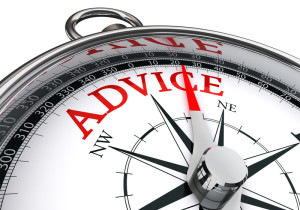I love this question. It was one of the questions for a panel I was supposed to be on this week. The NEHIMSS chapter has an annual Women in IT conference, and I was one of four invited panelists for the three-hour event. But 40 miles into my 100-mile drive to the venue, cruising fast on the freeway, my left front tire totally blew out – down to the rim. Scary yes, but I got myself over to the shoulder and called AAA. My second call was to the panel moderator explaining I wouldn’t be able to make it. An hour and a half later I was again on the road with the spare tire that is designed for maximum 50 MPH taking the back roads home to avoid freeway speeds.
three-hour event. But 40 miles into my 100-mile drive to the venue, cruising fast on the freeway, my left front tire totally blew out – down to the rim. Scary yes, but I got myself over to the shoulder and called AAA. My second call was to the panel moderator explaining I wouldn’t be able to make it. An hour and a half later I was again on the road with the spare tire that is designed for maximum 50 MPH taking the back roads home to avoid freeway speeds.
I was looking forward to the event and the panel. I love sharing stories with next generation leaders so this was going to be a fun night. I was ready after the usual panel prep call to cover the range of questions we had agreed on.
While I didn’t get to do the panel, I don’t want this question to go to waste – here’s what I was ready to say when asked what advice I would give my younger self:
- Know your big rocks – I’ve written on this in the past, “Do you know your big rocks?”. It comes from Stephen Covey and it is a spot-on analogy. Our families and closest friends are our big rocks. Don’t let all the little stuff take up your space first leaving no room for your big rocks.
- Don’t take crap from anyone – In my 30s, two of my peer managers seemed out to get me. One even threatened me. I was the only woman on the management team for a 5-year period. After a lot of stress and wasted energy processing it all at night talking to my incredibly supportive husband, I decided enough was enough. I let our boss know what was going on and told him that I would let him know of any further incidents. He was going to have to deal with it because I couldn’t. In another situation where a male manager from another department got overly friendly with sexual advances, I reported it to compliance. Hard as reporting something may be, it is necessary to stop the behavior if you can’t stop it yourself.
- Have a strong support system – Whether it is family or friends, everyone needs a support system they can turn to. I could tell plenty of stories about my incredibly supportive husband and how he has been there for me back when I was a young working mother in management and going to school at night for my MBA as well as the decades since (our 47th wedding anniversary is in a few weeks).
- Accept that you can make choices – One of my staff wanted to consider coming back from maternity leave after she had her first child in a part-time role but worried about how it would stall her career. She was a project leader on a management track. We talked about her options and I encouraged her to keep in mind that she had choices. After a period of part-time work, she eventually came back full-time, picked up again in a leadership role and then had two more children a few years later. She made choices right for her and balanced growing a family with growing her career.
- Own your own career and be open to the possibilities – Before I left my CIO position at Brigham and Women’s Hospital for a similar role at Michigan Medicine, we were going through major staffing changes in IT. My staff were concerned about their future in supporting legacy systems vs the new EHR coming in. I told them they had to own their own career and be open to the possibilities. When I make that second point now, I emphasize that there are jobs today that no one heard of 5 or 10 years ago and there will be new ones in the future we can’t even imagine now.
There you go – I had plenty more to say on the panel given the other great questions we were going to discuss but wanted to at least share this one.
And after this car experience, my parting advice is keep your AAA membership current and keep your cell phone charged.
Related Posts:
7 Ways to develop the next generation of leaders
10 tips for next generation leaders



